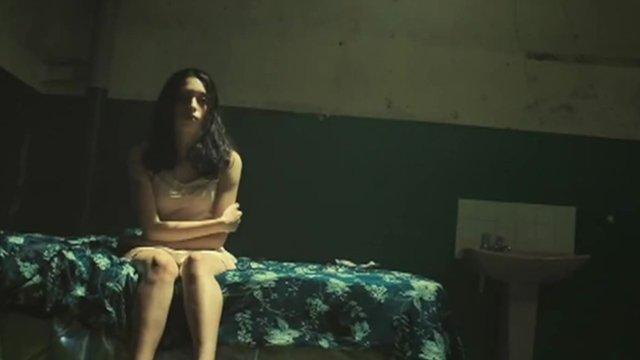Modern slavery reports in Wales quadruple in three years
- Published
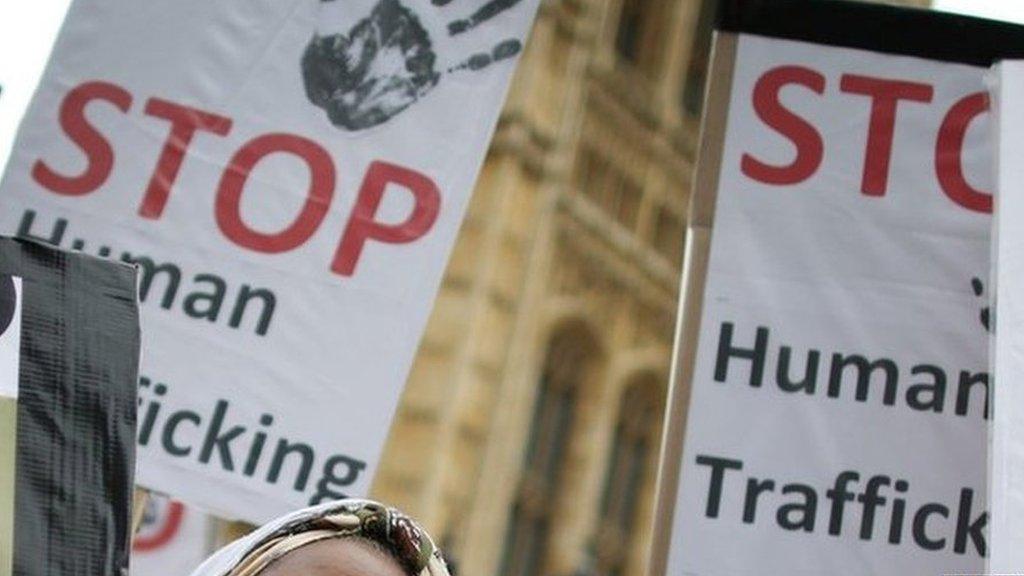
The report says the Welsh Government strategy is 'leading the way' in the modern slavery fight
The number of people identified as victims of modern slavery in Wales almost quadrupled in three years, a report has revealed.
Last year 134 people were classed as being potential victims or survivors across Wales - up from 34 in 2012.
The report, commissioned by the Welsh Government, said the increase could be down to improvements in identifying victims in Wales.
The Salvation Army said greater awareness would help stop traffickers.
Modern slavery includes forced labour, domestic servitude, child exploitation and prostitution.
The issue was thrown into the spotlight after David Daniel Doran was jailed in 2014 for forcing a vulnerable man to work unpaid at a farm near Newport.
The report claims Wales is now "leading the way" in the UK's fight against modern slavery.
It said training and support strategies towards tackling slavery had been "well implemented" since they were introduced in 2014.
Between April 2014 and December 2015, more than 100 potential victims and survivors were referred to the survivor care pathway (SCP) - many under the age of 15.
Cardiff and Vale of Glamorgan had the most referrals, making up 60% of all cases, while Merthyr Tydfil made the least with less than 2%.
'Evil trade'
Anne Read, anti-trafficking and slavery director at The Salvation Army, said demand on the charity continued to rise.
The Salvation Army - which holds the Home Office contract for managing safe houses for adult trafficking victims - has seen referrals in Wales increase from seven in 2011 to 39 in 2014-15.
Ms Read said: "It is possible that the increases in the numbers of people being supported is because there are more victims but it is important to note that the Welsh Government has developed a robust strategy of training and awareness-raising with the Wales anti-slavery leadership group.
"It would seem that this has resulted in better identification of potential victims and a proactive approach in looking to find and rescue victims of modern slavery and this is to be strongly commended.
"The greater the awareness of this issue the more difficult it will become for traffickers to ply their evil trade in human beings."
Thousands trained
It is thought the true number of victims could be higher as many are scared to come forward or might not understand they are being exploited.
The report makes a number of recommendations including increasing funding, exploring the introduction of spot checks on courses, and considering mandatory anti-slavery training for some professionals.
More than 6,300 people, including police officers and council workers, have attended anti-slavery training, which aims to spot the signs of slavery and to report incidents.
The Welsh Government said it remained committed to making Wales "hostile to slavery".
A Welsh Government spokesman said: "We are pleased that the evaluation has recognised our high quality work in Wales to tackle slavery.
"It is a despicable crime that brings misery and suffering to those affected and their families and we are as committed as ever to making Wales hostile to slavery."
- Published12 October 2015
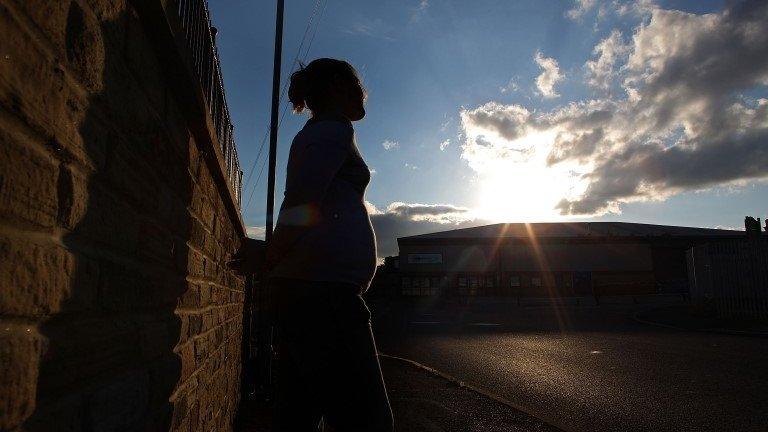
- Published17 June 2015
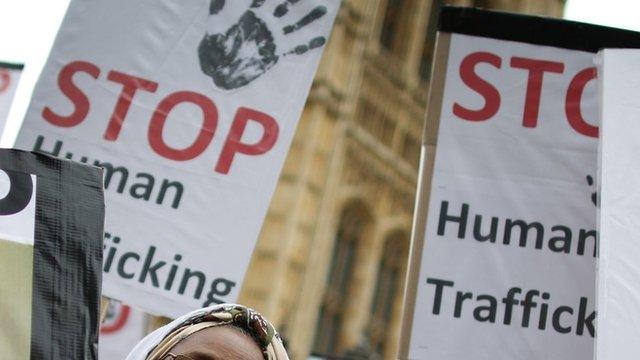
- Published4 November 2014
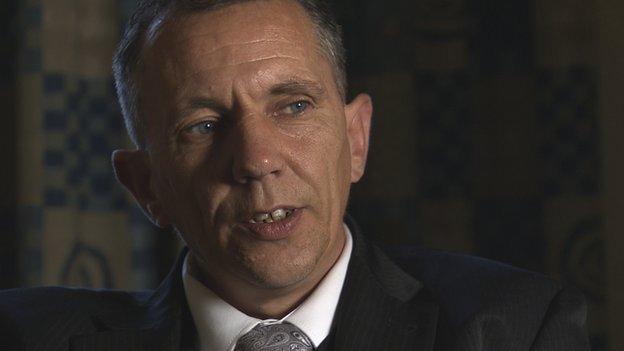
- Published17 November 2014
